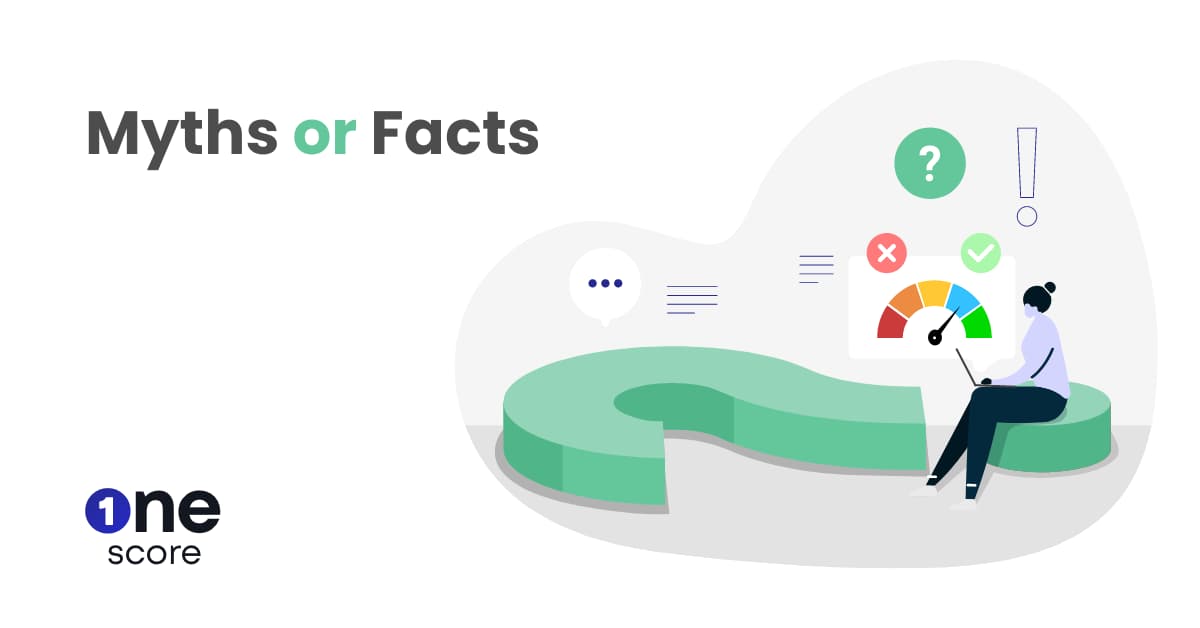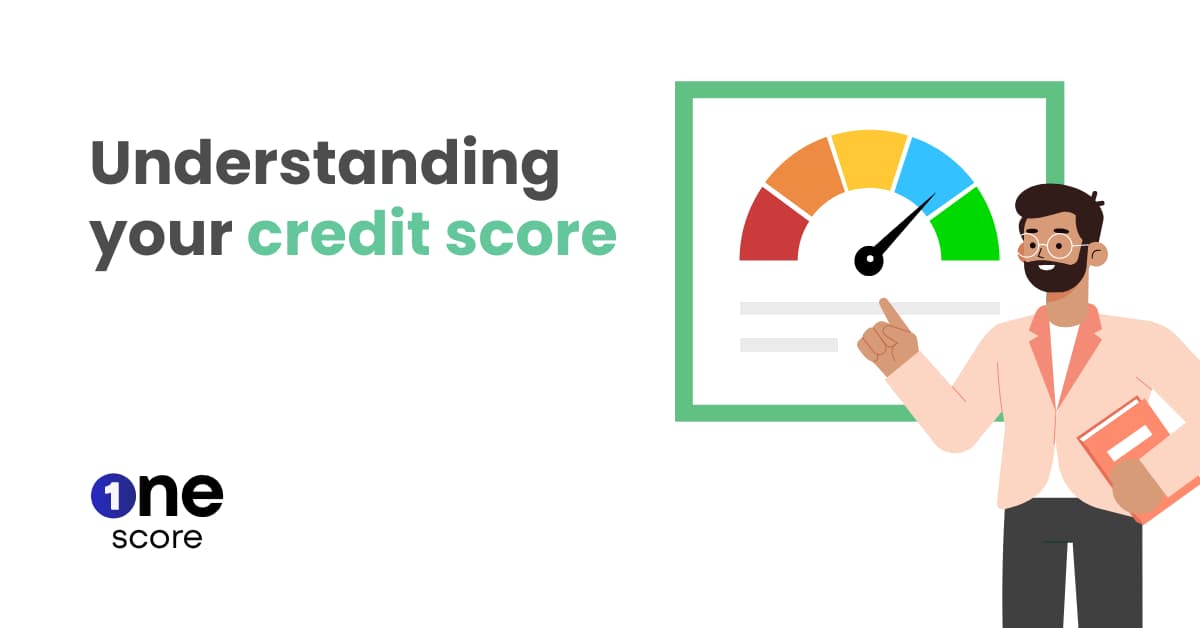8 common credit score myths debunked
There are many myths associated with credit score and credit report, and here we debunk some of the most common ones.

You’ve all heard about the term “credit score” someplace or the other. Be it a loan or credit card application, lenders check your credit score. It determines your creditworthiness as an individual, and it ranges between 300 to 900. Anything above 750 is considered a good credit score.
However, as the usage and awareness of credit scores and credit reports has increased, this has also given rise to many myths.
Debunking credit score myths
Some of the most common credit score myths are:
Myth 1: All credit bureaus have the same credit score
Although the term credit score means the same across all credit bureaus, there are different credit scores by different credit bureaus. There are four credit bureaus in India - Experian, CRIF High Mark, TransUnion CIBIL, and Equifax. Every bureau has its own proprietary algorithm and model to calculate your credit score, so you will have 4 different credit scores at 4 credit bureaus.
Myth 2: Checking your own credit report can hurt your score!
This is a very common myth floating around, causing many to be weary when checking their own credit score. Fact is, if a lender fetches your report from a bureau against a loan or credit card application, that is a hard inquiry, and there are chances your score may be affected. However, when you check your own credit report, it is a soft inquiry, and does not hurt your credit score at all. In fact, checking your credit report regularly is actually a good idea.
Myth 3: Disputing all credit report errors increases your credit score
There can be various types of errors in your credit report, pertaining to your name, contact details, date of birth, incorrect transaction or entry. When you raise a dispute, the bureau will get the lender to confirm these discrepancies. Any change in credit score will depend on whether the disputed item is a part of the bureau’s scoring model, and if the lender agrees to make the change. Disputing all credit report errors may not affect or help in increasing your credit score.
Myth 4: Debit cards help in building your credit score
It is often thought that debit cards can help you build your credit score like credit cards do, but that’s not true. The reason for this is quite simple - your credit score determines your “creditworthiness” as an individual - which means taking on credit and making timely repayments. However, when you use a debit card, you’re using your own money, and not availing of any “credit”, so debit cards cannot help in building your credit score. Here are 5 ways a credit card scores over a debit card.
Myth 5: Credit repairing agencies can help to fix your credit score
There are many credit repairing agencies which claim to help with repairing your credit score. While these agencies may help you by filing disputes to rectify errors etc, they cannot directly fix or repair your credit score.
Myth 6: Poor credit scores lasts for a lifetime
Contrary to what you might have heard, a poor credit score can improve in a few months if you work towards it. Information on payment defaults can remain in your credit report for several years (depends on the bureau), but if you follow healthy credit practices like making timely repayments, keeping your credit utilisation low, avoiding too many credit inquiries, these can help in improving your credit score.
Myth 7: Marriage means a merged credit score!
Credit scores are calculated according to your creditworthiness as an individual, and not as a married couple. Even if you have a joint bank account or a joint loan with your spouse, you will continue to have separate credit scores. However, do keep in mind that in case of a joint loan, a delayed EMI payment or a default can impact scores of both co-borrowers.
Myth 8: A high annual income means a high credit score
Your credit score is determined based on how many credit products you have and how well you’re repaying your dues. You can have an annual income of Rs. 10 lakh and have no credit score since you have no credit line against your name. On the other hand, you could be earning Rs. 4 lakh annually and have a credit score of 800+ because you have availed of a credit product and have a good repayment record and credit history. Your annual income has no bearing on your credit score at all.
In fact, whether you’re New to Credit (NTC) or already have a credit score, you can get your free credit score from our OneScore App. You will get a free CIBIL and Experian credit score and credit report every month.
**Disclaimer: The information provided on this webpage does not, and is not intended to, constitute any kind of advice; instead, all the information available here is for general informational purposes only. FPL Consumer Services Private Limited and the author shall not be responsible for any direct/indirect/damages/loss incurred by the reader in making any decision based on the contents and information. Please consult your advisor before making any decision.

- OneScore , December 16, 2020

